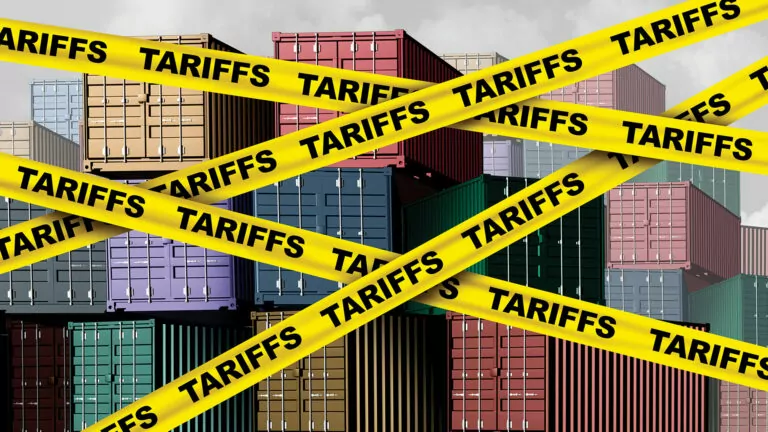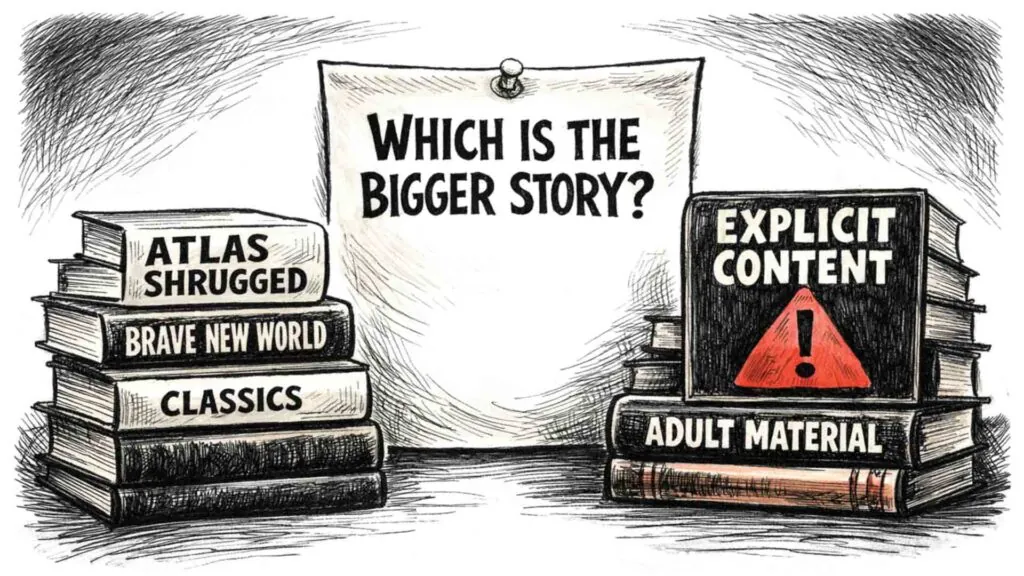Free trade – free of barriers and restrictions – has, traditionally, been pretty exclusive to the Right side of the political spectrum. But now, with President Trump implementing tariffs on steel and threatening tariffs on Canada and Mexico, we’re even hearing the Left talk about the harms that tariffs could cause. And not just to Canada and Mexico, but to American consumers too. As the far-left stalwart Alexandria Ocasio-Cortez (aka AOC) noted on X,
“Remember: *WE* pay the tariffs….Trump is all about making inflation WORSE for working class Americans, not better.”
But what is she talking about when she says Americans pay the tariffs it charges?
Think of it this way. Imagine two towns located right next to each other – Town A and Town B – and each has a car mechanic. These mechanics are full-service: they go right to your house to do the repairs. The only difference between the two is that the car mechanic in Town A – let’s call him Arnold – is way cheaper, so not only do all the folks in Town A use Arnold, so do most of the folks in Town B.
That, understandably, makes the mechanic in town B – we’ll him Bill – quite unhappy, as it really hurts his business. So Bill demands that his town put in a tariff of sorts. He wants a 25% surcharge on any “out of town” car mechanics. He argues that this surcharge will be incredibly beneficial – applying it to Arnold for the work he does in Town B will help fund Town B’s government. It will also help protect Town B’s homegrown car repair businesses – Bill’s – by making his prices seem more competitive. And, Bill notes, if he gets more business, the government will benefit from the taxes he’ll pay. Bill pitches his tariff/surcharge as a win/win all the way around.
But Bill is forgetting someone – several someones, in fact.
The surcharge will make Arnold’s prices higher. Any Town B clients who do continue to use him will now be paying 25% more. And any clients he loses to Bill will be impacted too, having to pay Bill’s higher prices for their car repairs, taking a bigger chunk out of their household budget than ever before. In other words, Bill is staying in business at the expense of the car repair consumers in his own town. That’s not win/win at all – that’s a win for Bill, at the cost of everyone else in town. This is what AOC meant when she said that Americans will pay the tariffs they charge.
Canada rightly fears American tariffs on the energy and goods they produce. Those tariffs could hurt our producers badly. But hitting back at American tariffs with our own tariffs on US goods is only going to compound the pain. It might benefit some of our producers – whoever makes the goods that compete with imported American goods – but that benefit will come at the expense of Canadian consumers overall by making them pay more. Just like Town B’s car repair “tariff” hurt Town B’s citizens.
Is there an explicitly biblical perspective to be brought here? Well, what about Leviticus 19:15?
“Do not pervert justice; do not show partiality to the poor or favoritism to the great, but judge your neighbor fairly.”
God equates justice and impartiality, which prompts a question: should a government take actions that benefit some of its citizens – some producers – at the expense of other citizens, the consumers and producers who use those goods? Isn’t that partiality? God also speaks to this in His Golden Rule (Matt. 7:12). “Do unto others as you would like done unto you,” applied to the economic realm would mean that car mechanic Bill wouldn’t argue for his surcharge because he wouldn’t want that same surcharge applied to everything he buys. If Town A has cheap car parts, or groceries, or gasoline, he’d love to be able to benefit.
The fact is, tariffs always hurt consumers, so no matter what the US does, let’s not let tariffs beget more tariffs. Instead of putting up trade barriers, there are actually interprovincial trade barriers that we could greatly benefit from taking down, as Pierre Poilievre has been highlighting recently.
In the video below Remy highlights one of the ills caused by tariffs – fewer choices and higher costs.












